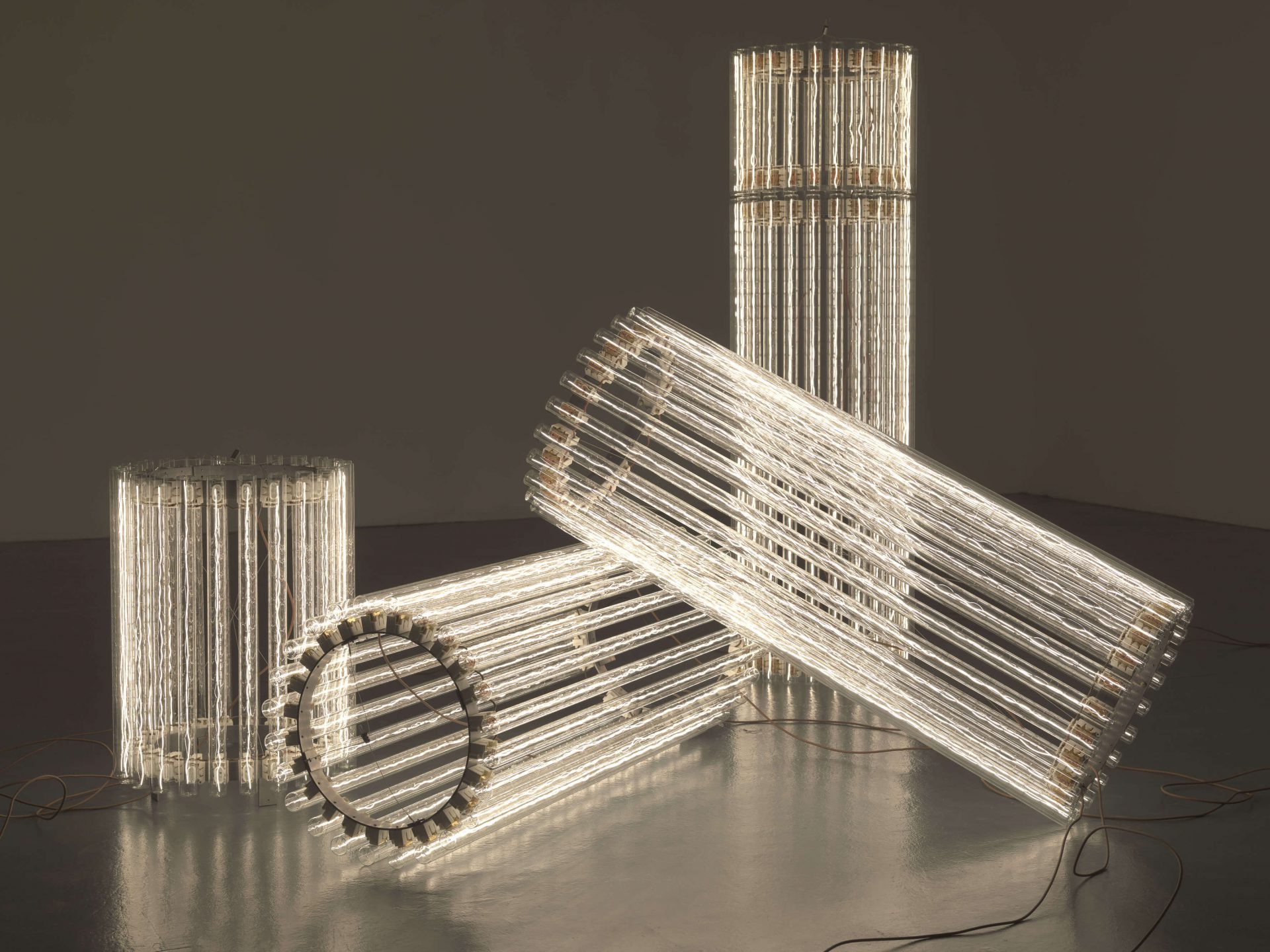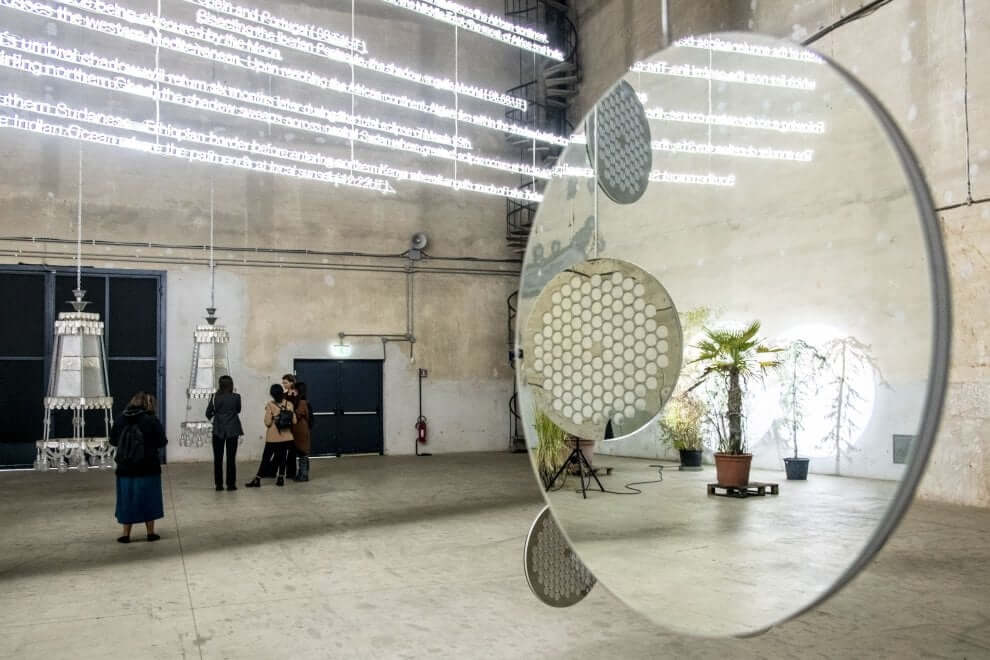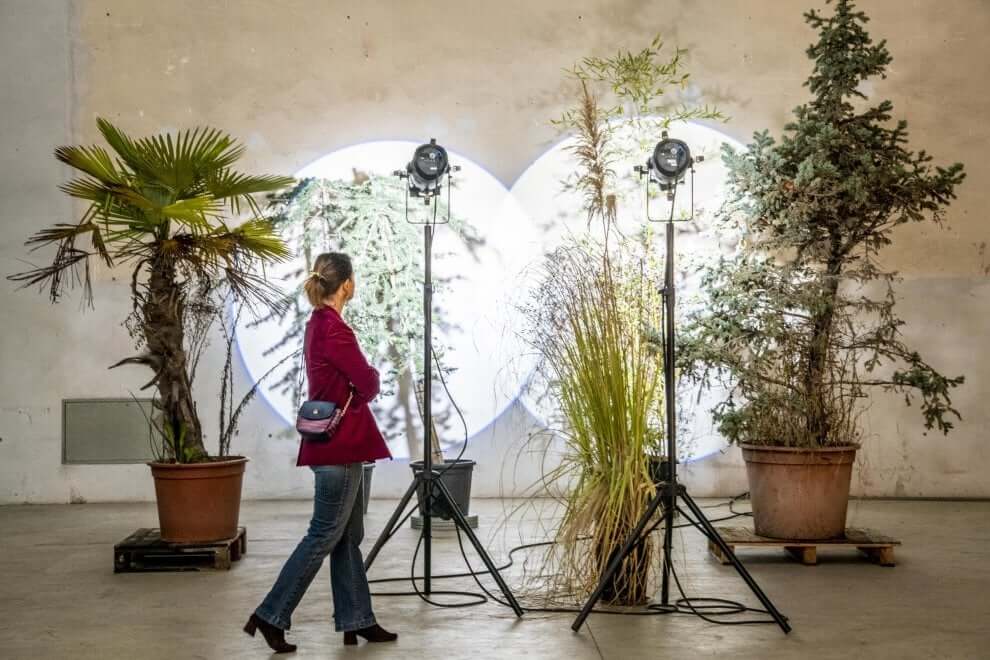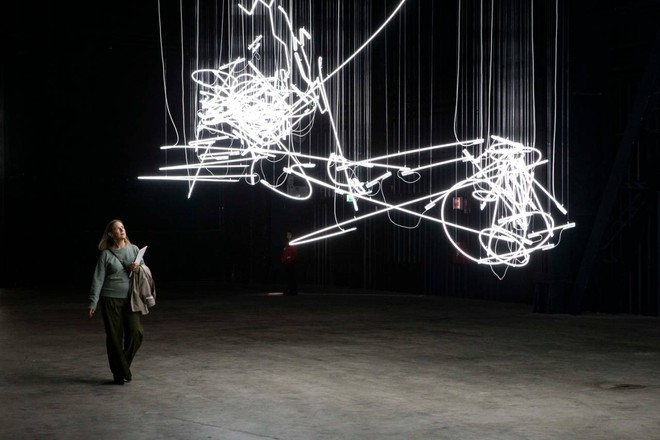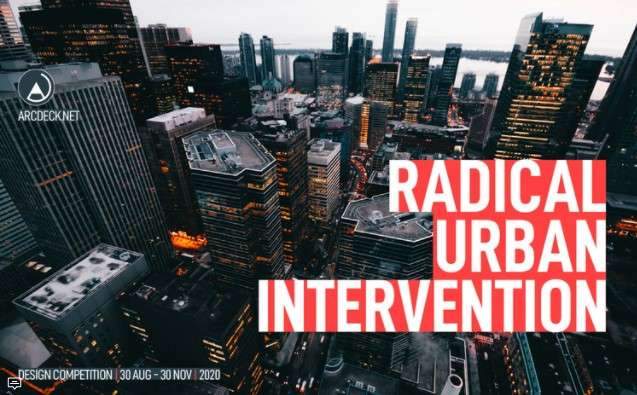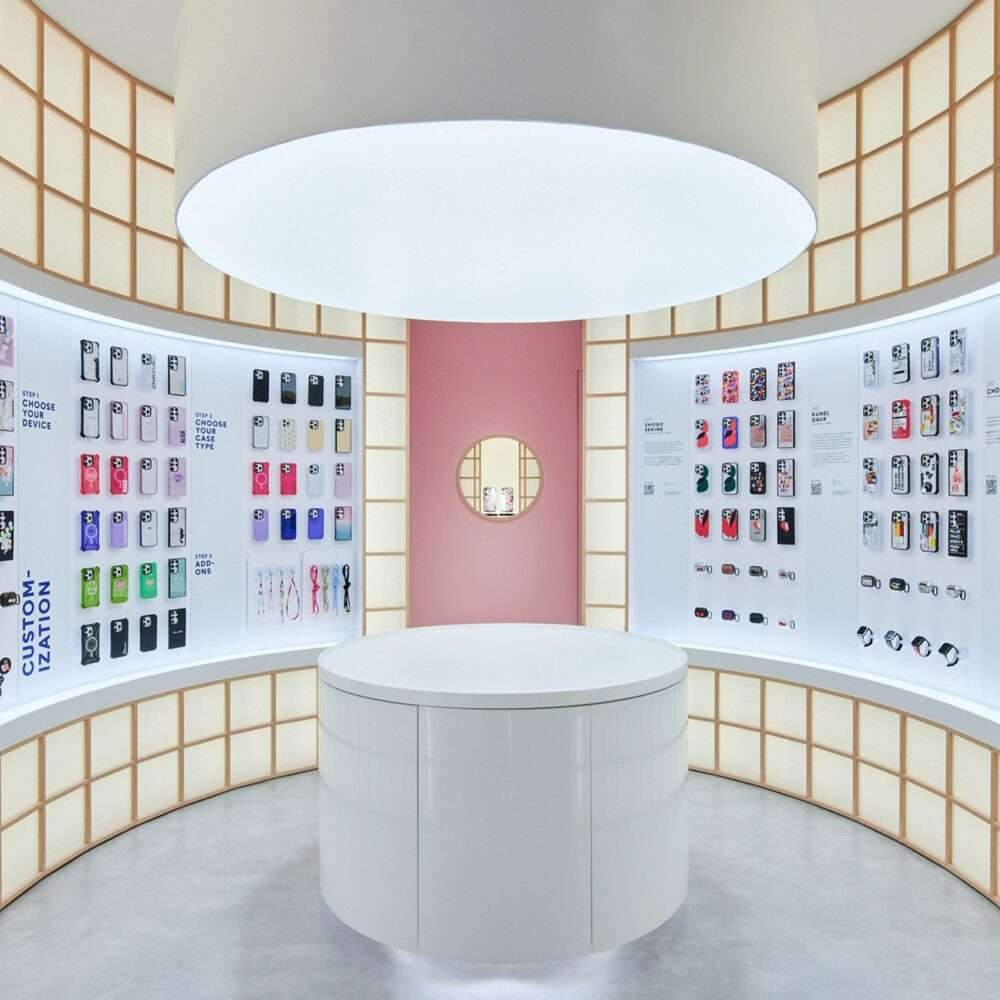Lucid dreaming – exhibition by Cerith Wyn Evans
‘The Illuminating Gas’ is Cerith Wyn Evans’s biggest solitary exhibition to date which focuses on how ideas can be communicated by means of forms that are astoundingly well executed through sound, energy, strong visual sense, at a massive architectural scale.
After starting his career as filmmaker, UK-based artist Cerith Wyn Evans turned his spotlight from films to site-specific installations. Continuing his exploration through different languages, temporal dimensions, and interchanging perceptions.
Additionally, Cerith’s works represent an ephemeral experience through palpable sensations in given space. Using varied materials such as mirrors, neon shades, plants, fireworks, projections. DesignWanted, while hunting stories came across his largest solo exhibition to date, displayed in Milan at Pirelli HangarBicocca.
Moreover, ‘The Illuminating Gas’ is divided into 3 distinct landscapes of choreographed lights and sounds generating multi-sensory feelings.
When you raise the curtains of the Piazza has seven monumental Doric columns, almost reaching the 20-meters high ceiling. Moreover, StarStarStar/Steer is a complex sequential lighting system, composed of LED tube lights connected through cylindric metal structures.

Moreover, These site-specific installations light up in a sequence, one after the other, with light fading in and out. Additionally, Each column turns from a translucent icy appearance to a vibrant looking sculpture.

Moreover, Heading towards the second room, filled with ever-glowing white neon lights, is simply an enchanting experience. These glowing lights can be seen as clusters of blazing stars falling from the dark sky. And suddenly stopped in the way wherein that moment everything seems to be on pause. Furthermore, A frozen fragment of time where each cluster is having a ‘rendezvous’ amongst each other. And the viewer without any restrictions, without a directed path.
Whether you walk adjacent to the Radiant Fold, the defined Oculist, the Neon Forms or the massive Forms In Space composition, you are witnessed with abstract patterns that are synthesized in kata-diagrams (a way of describing Japanese martial art forms) by the artist.

Furthermore, The artist often takes inspiration from Japanese aesthetics. Moreover, One of these complex clusters is representing Noh: a Japanese traditional theatrical form showcasing certain rituals. Furthermore, Cerith has inversed this depiction of movements; steps, turning the head, beating of the feet on the floor, holding a fan, and rolling the kimono sleeve, into a perplexing light design.

After an alternation of works developed according to choreographies that interchange different rhythms in a dark environment, a square entrance introduces the last space of the exhibition, placed inside the Cubo. Furthermore, In an unexpected antithesis of darkness and light, this environment is totally counter-posed to the two previous ones. A basic room, completely immersed in warm sunlight, transports in an alternative and fascinating environment, permeated by a feeling of abandonment.

Moreover, The bright entrance creates the illusion of walking into a precious forsaken living room, where the emerging feeling is the intrinsic seduction in the shreds of things that are no longer needed.
A striking colossal neon text, suspended diagonally into the room, attracts the visitor’s attention by describing a solar eclipse and its trajectory in a poetic tone with scientific terminology.

Moreover, On the right, a large polyphonic mobile composed of directional speakers with reflecting surfaces is drifting into space. Furthermore, Each mobile transmits a melancholic composition conversing with the entire room and inviting the audience to follow its movements.
On the left side, with an attempt to create a real-time movie, a group of palms and other plants are in the spotlight with different intensity, drawing inspiration from the son et lumière show.

Moreover, Partly hidden by the floating text, back of the room, two chandeliers made from blown Murano glass dangle from the ceiling. These extravagant decor pieces flicker on and off to a cryptic tune, translating sound into light.
Furthermore, The Cubo’s raw walls and the old winding staircase, associated with this heterogeneous set of works contribute to feeding the image of a completely abandoned to itself setting, where imperceptible discordant harmonies dominate in an emotional oxymoron.
What would you experience strolling down these captivating environments?

